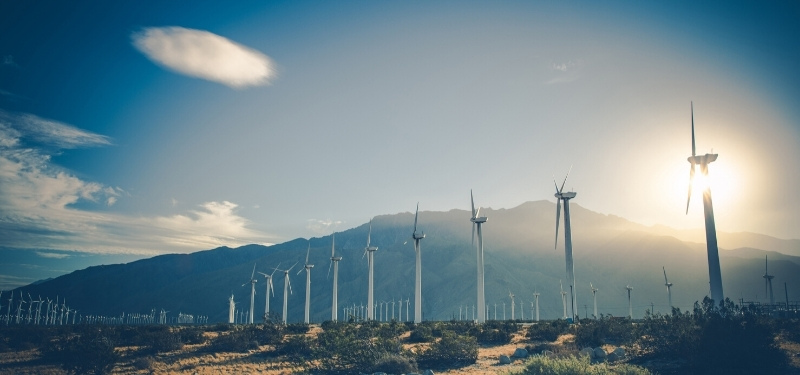
We have completed PROGO, the research & development project partially funded by the European Union with the European Regional Development Fund under the Smart Growth Operational Programme 2010-2014. The goal of the project was to develop methods of area-based forecasting of energy production from renewables. Another important goal was preparing scenarios for climate change in the next 60 years in Poland. Our work for PROGO included analysis of the energy potential of the wind and sun around Poland but it can also be used in other places.
We are glad to inform you that the PROGO project has been accepted by the National Centre for Research and Development. The Centre has acclaimed the financial aspect and outcomes of PROGO, such as reports from each stage of the project and the final conclusions.
Challenges of the renewable energy sector
Due to the growing share of renewable energy sources and their instability, the energy sector is facing challenges related to forecasting and balancing renewable energy generation. The main challenge is forecasting energy production from small, dispersed plants, including an increasing number of prosumers. Very often, those sources are outside the production scheduling and the only mechanism for balancing supply and demand is the balancing market. The lack of information about local distribution becomes increasingly bothersome for distribution network operators responsible for executing contracts. The area-based forecasting developed in the PROGO project is a solution in this case. It allows us to include prosumers from any area in the energy production forecast at an acceptable cost.
4RES – accurate renewable energy production
Area-based forecasting algorithms developed during the PROGO project are used in one of Globema’s solutions, 4RES. Thanks to this approach it has become a universal tool for forecasting energy production from wind and photovoltaic power stations of any size and territorial distribution.
We also created a service for forecasting the weather and energy potential of the wind and sun. The service maintains necessary forecast accuracy and provides an option for creating virtual power plants that can include prosumers.
- Interdisciplinary Centre for Mathematical and Computer Modelling at the University of Warsaw
- Electrical Power Engineering Institute at Warsaw University of Technology
Renewable energy – what’s next?
Does the end of the project mean that we are done with research work on renewable energy? Absolutely not! Currently, we are working on prognOZEr website. The website will present aggregated forecasts of energy production from wind and sun in the 3-day horizon on the level of provinces and counties in Poland. Forecasts are based on the information about all renewables in Poland provided by the Energy Regulatory Office and weather forecasts provided by the Interdisciplinary Centre for Mathematical and Computer Modelling. We will keep you posted about our progress – feel free to follow us on LinkedIn.











